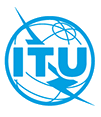International Research, Development and Testing Centre for new equipment, technologies, and services (IRDTC) - Phase 2
| Project No | 9RER20026 |
| Title | International Research, Development and Testing Centre for new equipment, technologies, and services (IRDTC) - Phase 2 |
| Description |
At present, the Internet of Things, Industrial Internet, Internet, Information Quantum technologies, Smart Cities and Communities technologies, and the technologies of the SG/IMT-2020 and beyond {for example, the NET-2030 concept) form the basis for the sustainable development of both future telecommunication networks and the world economy in general, which is entering its new development epoch - the era of digital economy. These technologies are also used together with cloud/fog and edge computing, machine-learning, business process automation, robotics for industry automation within the frameworks of the Industrial Revolution and artificial intelligence concepts. Prior to the implementation of the above technologies and solutions both at the national and international levels, it is required to conduct their engineering studies, verify their compliance and functional compatibility, perform the works aimed at the development of international standards and guidelines, and to conduct test pilot trials and pilot runs in conditions close to actual economic relations. As a rule, this work is performed independently by various market participants (developers, vendors, operators, providers, administrations, etc.) at different scientific and technical levels and in different and unrelated global locations and regions. At the same time, the current development rates of the telecommunications/lCT technologies and economic demand in the conditions of the countries transitioning to digital economy require the ITU Member States' communication boards and telecommunication/lCT operators to adopt a comprehensive approach to tackling new technology tasks within tighter deadlines than ever and at the required confidence and security level for telecommunication/lCT services. The deadlines for implementation of new technologies and services are becoming one of the critical criteria of countries' and businesses' economic success. However, comprehensive efforts are often rather expensive and cannot be afforded by many participants acting independently. At present, the majority of developing countries can efficiently tackle these tasks through synergy and maximum possible involvement of all participants as partners within the frameworks of new principles of Digital E |
| Area of Action |
Technology & Network Development |
| Status | Ongoing |
| Time Frame | From 1/7/2020 To 31/12/2025 |
| Related ITU Webpages | |
| Beneficiary Countries | Armenia, Azerbaijan, Belarus, Kazakhstan, Kyrgyzstan, Tajikistan, Turkmenistan, Russian Federation, Uzbekistan |
| Implementing Agency | ITU |
| Cooperation Agency | Ministry of Digital Development, Communications and Mass Media of the Russian Federation represented by PJSC |
| Financial Scale (CHF) | 100'000 - 500'000 |
| Achievements |
Advanced Recommendations Development: Formulated recommendations on modern technologies and telecommunication market functioning, addressing network security, service quality, and traffic management. Compatibility Models Creation: Developed models for device compatibility and innovation services, aiding the implementation of IoT, Industrial Internet, and Smart City concepts. Testing Laboratory Recommendations: Provided recommendations for setting up and operating testing labs for IoT and Smart Cities, focusing on sustainable development goals. Publication of Testing Methods: Shared methods and results from the IRDTC's testing activities, contributing to the sector's body of knowledge. Training Material Development and Specialist Training: Enhanced research and operational capabilities through additional training materials and sessions, broadening the expertise in IoT and related technologies. Operational Testing and Equipment Procurement: Strengthened the IRDTC's testing operations through expert recruitment, equipment procurement, and comprehensive research activities.
|



